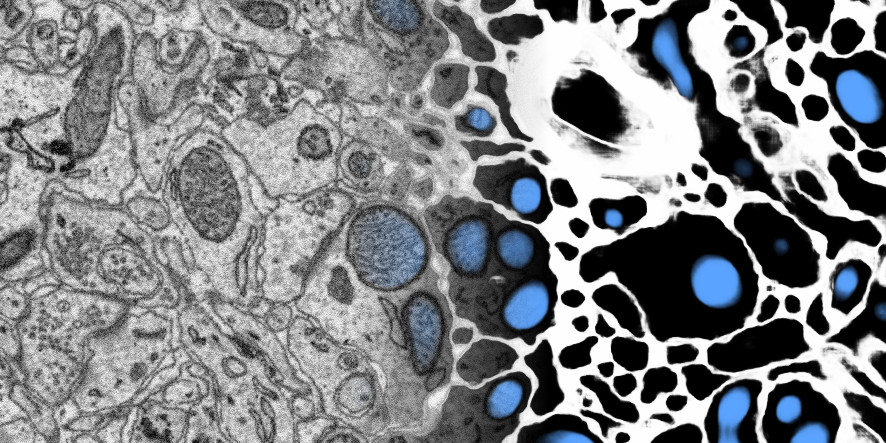ELEKTRONN is a highly configurable toolkit for training 3D/2D CNNs and general Neural Networks.
It is written in Python 2 and based on Theano, which allows CUDA-enabled GPUs to significantly accelerate the pipeline.
The package includes a sophisticated training pipeline designed for classification/localisation tasks on 3D/2D images. Additionally, the toolkit offers training routines for tasks on non-image data.
ELEKTRONN was created by Marius Killinger and Gregor Urban at the Max Planck Institute For Medical Research to solve connectomics tasks.
ELEKTRONN 1.0 has been superceded by ELEKTRONN2.
Only ELEKTRONN2 is actively developed and supported, so we encourage you to use it instead of ELEKTRONN 1.0. ELEKTRONN2 brings many new features and a completely new functional API, which allows for much greater flexibility in creating neural networks.
Membrane and mitochondria probability maps. Predicted with a CNN with recursive training. Data: zebra finch area X dataset j0126 by Jörgen Kornfeld.
$ elektronn-train MNIST_CNN_warp_config.pyThis will download the MNIST data set and run a training defined in an example config file. The plots are saved to ~/CNN_Training/2D/MNIST_example_warp.
ELEKTRONN
├── doc # Documentation source files
├── elektronn
│ ├── examples # Example scripts and config files
│ ├── net # Neural network library code
│ ├── scripts # Training script and profiling script
│ ├── training # Training library code
│ └── ...
├── LICENSE.rst
├── README.rst
└── ... 